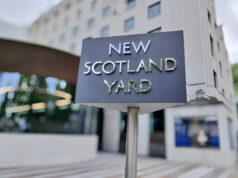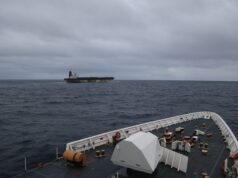A report into the foreign funding of extremist groups will not be published by the government, prompting criticism from opposition parties.
The report, commissioned by David Cameron, was set to examine the UK funding of extremist groups in places like Saudi Arabia, which has been recently highlighted as a hotbed for Islamic extremism.
At first, this enquiry was launched with a deal in the coalition government: the investigation would be carried out in exchange for Liberal Democrat support for extended airstrikes in Syria in 2015.
All that was published was a small summary of the report, composed by Home Secretary Amber Rudd. In this summary, Rudd claimed that:
- UK funding of extremist groups is coming most frequently from “anonymous public donations”
- Some Islamic extremist groups are branding themselves as charities to gain income and to “increase their credibility”
- Overseas income provides a sizable proportion of some extremist groups’ money, but “for the vast majority of groups in the UK, overseas funding is not a significant source”
- Some organisations have been receiving “hundreds of thousands of pounds a year”
Rudd claimed that the full report contained “sensitive and detailed personal information”, and it would damage national security if published. Thus, the report will only be accessible to privy councillors from opposition parties on privy council terms.
The move has prompted fierce resistance from opposition parties, with Coleader of the Green Party Caroline Lucas stating that Rudd’s summary “gives absolutely no clue as to which countries foreign funding for extremism originates from”.
She goes on to say that the government are vulnerable to “further allegations of refusing to expose the role of Saudi Arabian money in terrorism in the UK”.
Liberal Democrat leader Tim Farron, assured by Cameron that the report would be published, said the government’s refusal to publish the report was “shameful”.
He then said the government should be “naming and shaming… so-called allies like Saudi Arabia”.
Rudd’s summary claimed that to tackle the problem, the government will be “continuing to deliver public awareness campaigns” as well as introducing “a requirement for charities to declare overseas funding sources”.
Her final claim in the summary was to raise “issues of concern… with specific countries” to counter terrorism and extremism.













“UK funding of extremist groups is coming most frequently from “anonymous public donations””
Quashed because as the snippet alludes, it doesn’t fit the PC/pro-islam agenda.
But the BBC tells me that islam is about peace and love, i’m confused.
@Joe The report has not been quashed because it fails to fit a pro-PC agenda, but because it could prove politically difficult given from which countries those overseas donations could be coming from –
probably countries we sell a lot of arms to in the Gulf.
@Steven Jones amusing but lazy. You know the BBC doesn’t say this.
The snippet mentions where that money from Britain is GOING ABROAD TO jihadists.
Well we wouldn’t want to offend our biggest arms customer and expose their hypocrisy in branding the Qataris as supporters of radical islamicist groups would we?
Didn’t public donations from the USA keep PIRA going in the troubles?
KSA has created by problem by exporting their strict version of Islam, but they do not support terrorism as the political left would like us to believe.
I worked in KSA on secondment to the Saudi army, found the people very pleasant and enjoyed my time there.